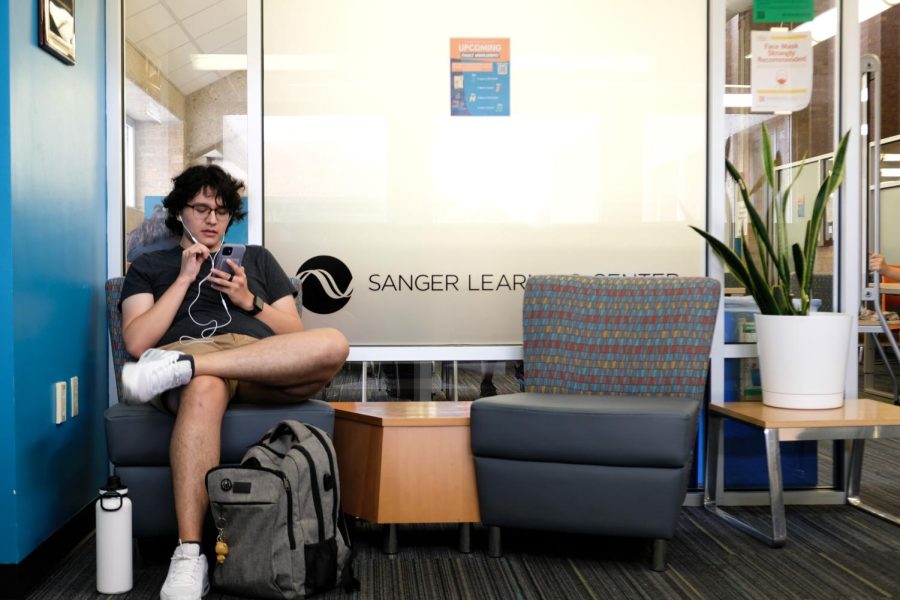UT researchers receive $4 million grant to improve literacy through peer tutoring
November 11, 2022
UT researchers received $4 million to look at the efficacy of cross-age peer tutoring to improve reading skills in elementary school students.
The grant, given by the Institute of Education Sciences, will allow researchers in the College of Education to examine the efficacy of a peer tutoring program by pairing first and second graders with fourth and fifth graders in YMCA programs, according to a press release. Principal investigator Elizabeth Swanson said the researchers hope the peer tutoring will help reduce achievement gaps by providing extra help to students whose schools do not have the time or resources to assist.
“We know that schools are working hard to make up for that learning loss caused by pandemic-related (reasons),” said Swanson, a special education research professor. “But we realize they can’t do it alone.”
Some schools do not teach reading in a way that yields results, Swanson said, so to supplement classroom education, after-school programs like the YMCA can provide opportunities for those who cannot access tutors.
“An after-school program can contribute to kids’ needs by coming in with extra reading instruction that they otherwise wouldn’t be able to access because of time constraints or money constraints,” Swanson said.
About 1800 students from YMCA of Central Texas and YMCA of Middle Tennessee locations will participate in the study. Swanson said the peer tutoring study is an opportunity for the YMCA to introduce literacy tutoring into their after-school programs.
Students will use Sound Partners, a phonics-based tutoring program, three times a week for thirty minutes with their peer tutor.
Swanson said she hopes the program will also help fourth and fifth graders who missed out on their prime literacy education time during the pandemic. Students most effectively learn to read before eight years old, she said.
“If you’re a struggling reader by third grade, it is exceedingly highly likely that you will be a struggling reader for the rest of your life,” Swanson said.
Biology sophomore Gautam Ghamande works with the student organization Students Expanding Austin Literacy to decrease literacy barriers. SEAL pairs college students with elementary schoolers at low-income schools to help them combat reading barriers.
“I saw how much reading changed my outlook on life,” Ghamande said. “It helps empower them to have more control over their futures.”
Christian Corral, a peer academic coach at the Sanger Learning Center, said peer tutoring allows students to have a more active role in their learning as they are learning from someone they can relate more to.
“You see (adults) with this authority and sometimes that authority can translate into someone telling you what to do,” exercise senior Corral said. “Having student tutors and peer academic coaches allows (students) to express more their reactions and their needs.”
In particular, Swanson said cross-age peer tutoring can increase a students’ interest in learning.
“There’s a motivational factor,” Swanson said. “A first grader thinks it’s super cool to sit with a fifth grader.”
Since peer tutors can sometimes empathize better with a fellow student than a professor who is an expert at a subject, they can be more effective.
“If I were to help a student with chemistry, I just took chemistry two years ago (so) I still remember what the struggle was like,” Corral said. “Having people around the same age range and the same experiences as the students helps them create those relationships a lot better.”



